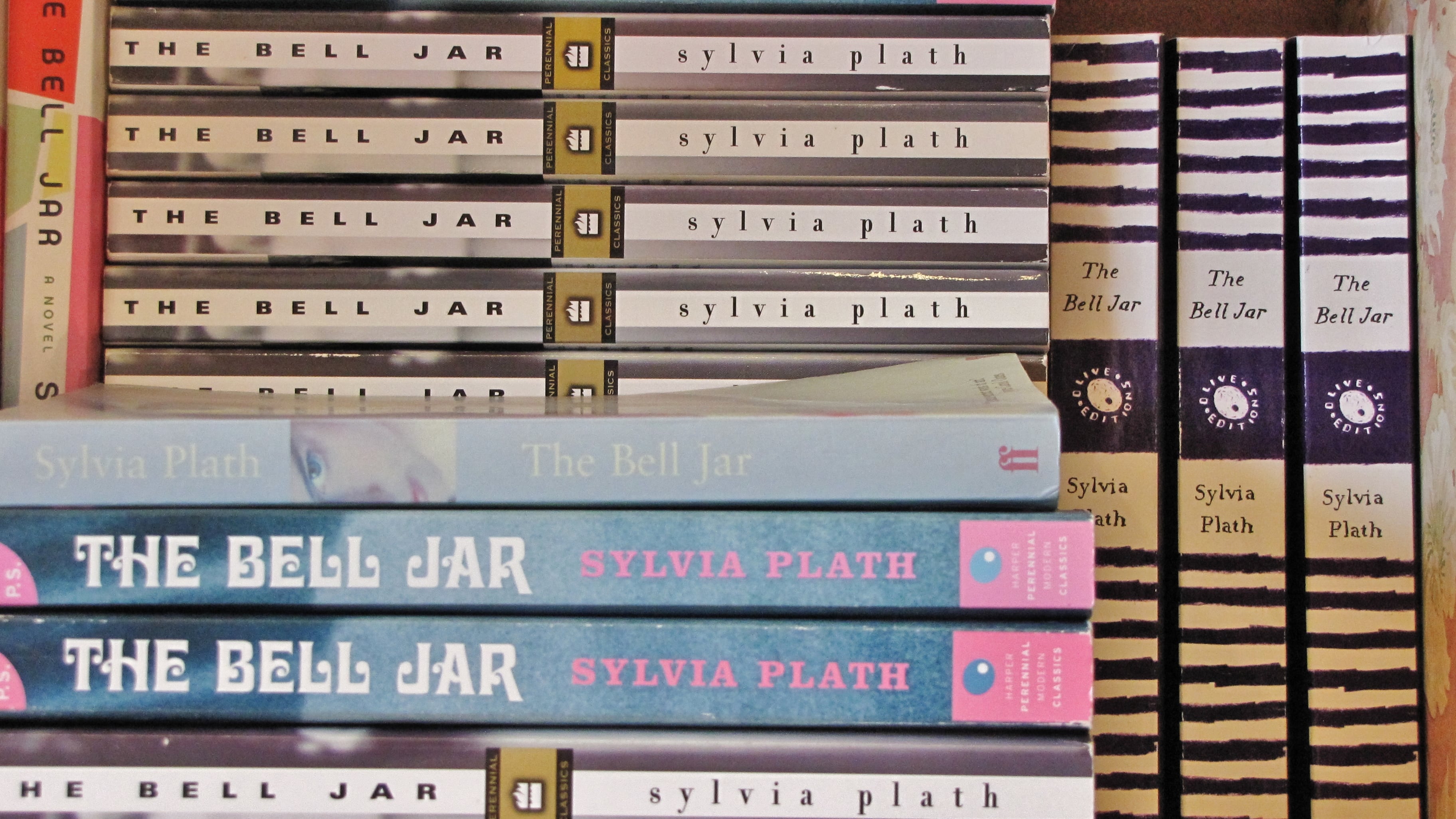Hey, let's talk about Sylvia Plath's revered feminist novel The Bell Jar this week, shall we? Over the years I've lost count of how many times someone has insisted I read it, so last year I finally decided to give it a shot to see if it held up to all the praise.
It did not.
Unfortunately it was just another embodiment of white feminism, which is label for a certain type of feminism that focuses on the safety and comfort of white, middle and upper middle class women at the expense of women of color and other marginalized people.
A good example of white feminism is Equal Pay Day, the date that marks how far into the new year a woman must work in order to earn what a man did the previous year. It's often celebrated in April, which is Equal Pay Day for white women, even though Black, Native and Hispanic women make less on the dollar. For a woman of color like me, Equal Pay Day hasn't even happened yet.
By focusing on their own plight, rather than using their economic and racial advantage to center women of color, white feminists perpetuate racism through fetishization, erasure and outright mockery, three issues that spring up more than once in Plath's famous novel.
For those unfamiliar with The Bell Jar, it was published in 1963 and is a story about a young writer named Esther Greenwood who spends a month in New York City working as a paid intern for a women's magazine. In spite of this once-in-a-lifetime opportunity, complete with room and board, Esther is unable to enjoy herself and she ends the program in disappointment. She returns home to discover she was rejected from a writing program she had been anticipating, and is forced to spend the summer at home with her mother. After not sleeping for a few weeks and a failed suicide attempt, Esther is admitted to a private mental health hospital, which is paid for by a rich, eccentric woman who is funding Esther's education and writing career. It ends with Esther on her way to an interview where she'll find out if she's fit to return to school.
There are many parallels between Esther Greenwood and Sylvia Plath, and the book draws on a number of Plath's own experiences with a struggling writing career and mental health issues.
It's an interesting enough piece of fiction, but in the online discussions I've read, very little has been said about Plath's use of some seriously racist stereotypes that occurs throughout the novel, and there's more than a few examples. In one part, Esther Greenwood describes her reflection as "a big, smudgy-eyed Chinese woman staring idiotically into my face," in another she calls indigenous Mexicans ugly and says things like "dusky as a bleached-blonde negress".
Gross—and not very feminist, if you ask me.
It's not just these tired insults though.
Plath decided to go all out and use the hypersexual, rapey Latino stereotype, one we still see pop up every now and then, like in that Amy Schumer joke or Donald Trump's presidential campaign announcement. In one of the few instances I read of someone actually addressing the racism found throughout the book, it was dismissed as being an unfortunate product of that time period.
However, this is a bogus excuse because these stereotypes are still being used today, and I'd bet good money there were people alive in Sylvia Plath's time who knew that was some terrible shit to say, like those who were the target of those stereotypes, perhaps?
Probably the most glaring examples of racism comes during a scene where Esther is being served dinner while in the mental health institute. The man serving her is described as a stupid, laughing, indolent Black man with huge, rolling eyes, a racist trope made popular with books like "The Story of Little Black Sambo," which was published in 1898. Yikes. During this scene, the man commits the offense of serving two types of beans for dinner, something I had no idea was even a thing, and Esther punishes him for it by kicking him. You heard that right. She physically assaults a Black man for serving two kinds of beans and he runs away moaning cartoonishly.
The racism in this scene is so glaring that even though I shouldn't have been at this point, I was shocked at the lack of discussion about this aspect of the book. Maybe it's time to rethink The Bell Jar's feminist credentials, or at the very least reclassify it as a problematic favorite, especially since stereotypes are rooted in racial bias and don't exist outside of a historical context.
A search on social media shows that there's a number of feminists who identify with the character that Plath created, adopting Esther Greenwood as a screen name or describing themselves as some version of her, and after hearing such little discussion surrounding the loaded racist language in the book, it makes me wonder which parts of her people find so endearing and why.
I'd skip The Bell Jar if I were you, there's plenty of stuff to read out there that isn't racist bullshit masquerading as women's empowerment. Books like Canícula: Snapshots of a Girlhood in la Frontera, by Norma Cantú, or Sula by Toni Morrison are good places to start.
Well that's it for this week—see you all next week. And seriously, you don't need to read The Bell Jar.

Introducing WW's New Lady Things Columnist: Crystal Contreras
Instead of Wreaking Havoc on Native Land, the Rainbow Gathering Needs to Find a Permanent Home
Alright—Enough With the Nativist, Anti-California Bullshit
Why the Hell Does Immigration Policy Assign the Right to Migrate Based on the Labor Someone Does?
There's Nothing More American Than White Supremacists In Ugly Clothing
Why the Young Adult Fiction I Read As A Kid Is More Relevant Than Ever
Why Your Reasons For Not Wanting Californians in Portland Are Total Bullshit
Three Things Portland Has in Common with Derry, Maine, the Town from "It"
It's Almost October, Which Means We Need to Talk About Racist Halloween Costumes Again

